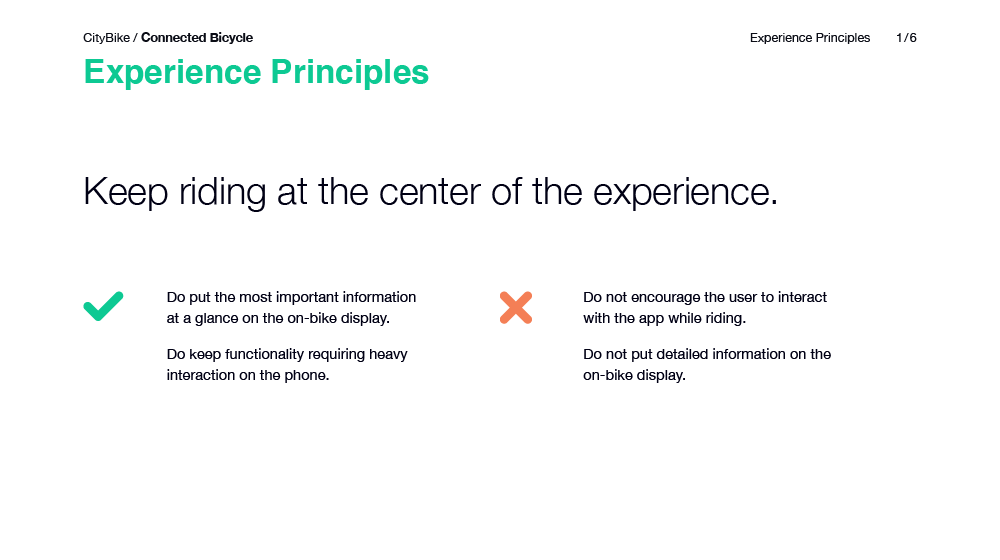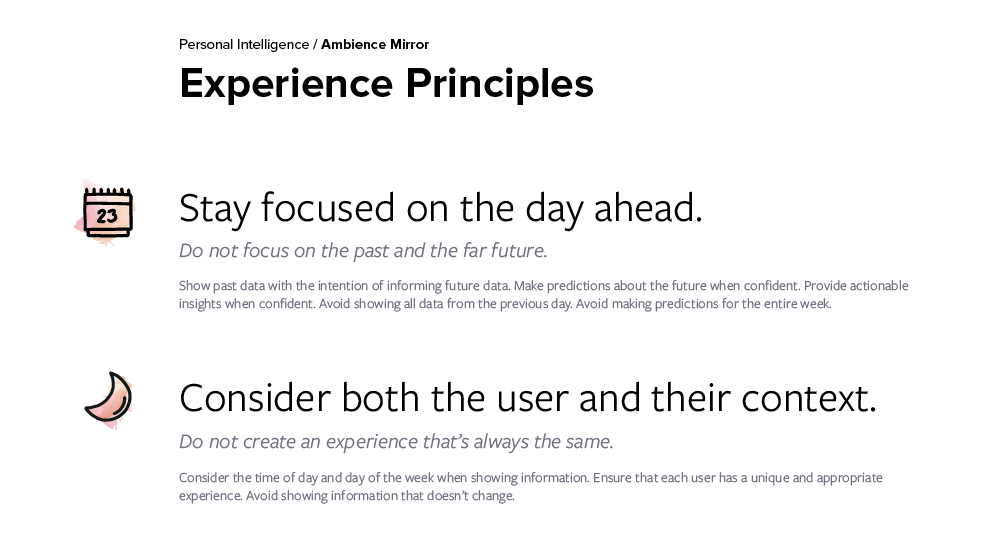Define 13
Experience Principles
Creating a product or service takes time, and more complexity requires more time. Over the life of a project, as teams shift, new trends emerge, and technologies evolve, it can be a challenge to determine which changes should affect the course of your project. With discovery-phase inputs like trendscapes, user interviews, and business and competitive analyses, experience principles provide guidance and ensure that the most important aspects of the vision survive from conception through execution.
When creating experience principles, it’s important to consider their entire life span and their many audiences. Experience principles need to be as relevant to a business stakeholder making decisions around marketing as they are to engineering stakeholders making decisions around feature prioritization. A solid set of experience principles will not only keep the product or service focused, it will also ensure that the project team stays aligned.
Buy from Amazon Buy ElsewhereCityBike
Connected Bicycle
CityBike’s experience principles describe how screens should be used to support the user’s experience with the Connected Bicycle, rather than dominating it. Principles are supported with examples of both good and bad decisions.
Personal Intelligence
Ambience Mirror
Experience principles for Ambience Mirror describe a product differentiated from others in the market. Each principle describes what should be done, what should be avoided, and examples of adherent decisions.
Related Chapters
01
Business Analysis
Will people buy my product? How much will they spend? Can we produce the product? For how much?
02
Technology Analysis
What underlying technology is essential to my product or service? Does my company have that capability?
05
Expert Interviews
What questions should I ask to learn what I don't know? Where can I find experts to interview?
19
Participatory Design
How can we ensure that we have many perspectives represented in the design process? When should we bring in users to enrich our process?

